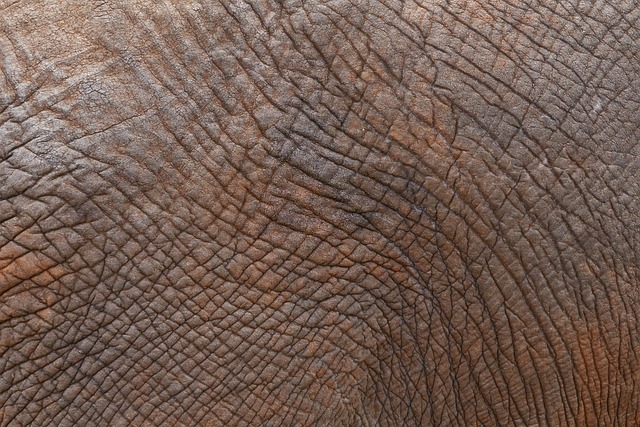In Liverpool, skin tag removal has become popular, with apple cider vinegar (ACV) emerging as a natural alternative to traditional methods like surgical excision and liquid nitrogen freezing. While ACV's acetic acid is thought to dissolve tags, scientific evidence supporting its effectiveness is limited, and outcomes vary. For reliable and personalized Liverpool skin tag removal, consulting a dermatologist is advised, especially for persistent cases. DIY ACV treatment involves applying diluted vinegar to the tag daily until it falls off, but patch testing is recommended to prevent irritation or dryness.
Looking for a natural way to remove skin tags in Liverpool? Apple cider vinegar (ACV) has gained popularity as a potential home remedy. This article delves into the world of skin tags, exploring their causes and whether ACV can offer a gentle, effective solution. We’ll guide you through the process, from understanding this common skin concern to ensuring safe application for successful Liverpool Skin Tag Removal.
- Understanding Skin Tags and Their Causes
- Exploring Apple Cider Vinegar as a Natural Remedy
- Effective Application and Safety Precautions for Liverpool Skin Tag Removal
Understanding Skin Tags and Their Causes
Skin tags, also known as acrochordons, are small, soft skin growths that typically appear in areas where skin rubs against itself, such as the neck, armpits, or groin. They are generally harmless and often hereditary, but some people may develop them due to other factors like obesity, diabetes, or hormonal changes. In Liverpool Skin Tag Removal has become a popular topic as individuals seek effective yet gentle solutions to get rid of these tags.
While they are usually painless, skin tags can be a source of embarrassment for some. Traditional methods of removal include surgical excision or freezing with liquid nitrogen. However, apple cider vinegar is emerging as a natural alternative. Some people claim that applying undiluted ACV directly to the tag can cause it to dry out and eventually fall off. Yet, it’s important to note that scientific research on this method is limited, and results may vary from person to person.
Exploring Apple Cider Vinegar as a Natural Remedy
Apple cider vinegar (ACV) has long been celebrated for its multitude of health benefits, including its potential as a natural remedy for various ailments. When it comes to skin tag removal, Liverpool residents have shown interest in exploring ACV as an alternative solution. Skin tags are small, harmless growths that often appear on the neck, armpits, or other areas of the body, and while they’re usually benign, many people opt to remove them for cosmetic reasons. Traditionally, this has been done through medical procedures or over-the-counter products, but ACV offers a potential natural approach.
ACV’s acetic acid content is believed to help dissolve the cells that make up skin tags, making it a popular home remedy option. Some people report success in removing skin tags by applying diluted ACV directly to the affected area, securing it with a bandage overnight, and then gently exfoliating the dried-out tag the following day. However, it’s important to note that scientific evidence supporting this method is limited, and results may vary. As with any DIY remedy, caution should be exercised, and professional medical advice sought if necessary, especially for more extensive or persistent skin tag concerns, as a qualified dermatologist in Liverpool can provide tailored guidance.
Effective Application and Safety Precautions for Liverpool Skin Tag Removal
To effectively remove skin tags using apple cider vinegar, a clean, dry cotton ball or pad should be soaked in the vinegar and gently applied to the skin tag. Hold the cotton ball in place for several minutes, allowing the vinegar’s acetic acid to dissolve the skin cell buildup that forms the tag. This process should be repeated daily until the skin tag falls off or diminishes significantly. It’s important to note that while apple cider vinegar is considered a natural remedy, it may cause irritation or dryness to surrounding skin, especially with prolonged use.
For safe application of Liverpool Skin Tag Removal, always perform a patch test before treating larger areas. Dilute the vinegar with water (1:1 ratio) and apply a small amount to a discreet part of your skin to check for any adverse reactions. Avoid using it on sensitive areas like the face or genitals. If irritation occurs, discontinue use immediately. Consulting with a dermatologist is recommended if you have concerns about skin tags or experience severe reactions.
Apple cider vinegar has shown promise as a natural remedy for removing skin tags, but it’s important to approach this method with caution. While some people report success in Liverpool Skin Tag Removal through regular applications, scientific evidence is limited. As with any at-home treatment, individual results may vary, and there’s a risk of irritation or complications. Before trying this natural approach, consult a dermatologist for guidance on the best course of action tailored to your specific skin tags and their causes.
